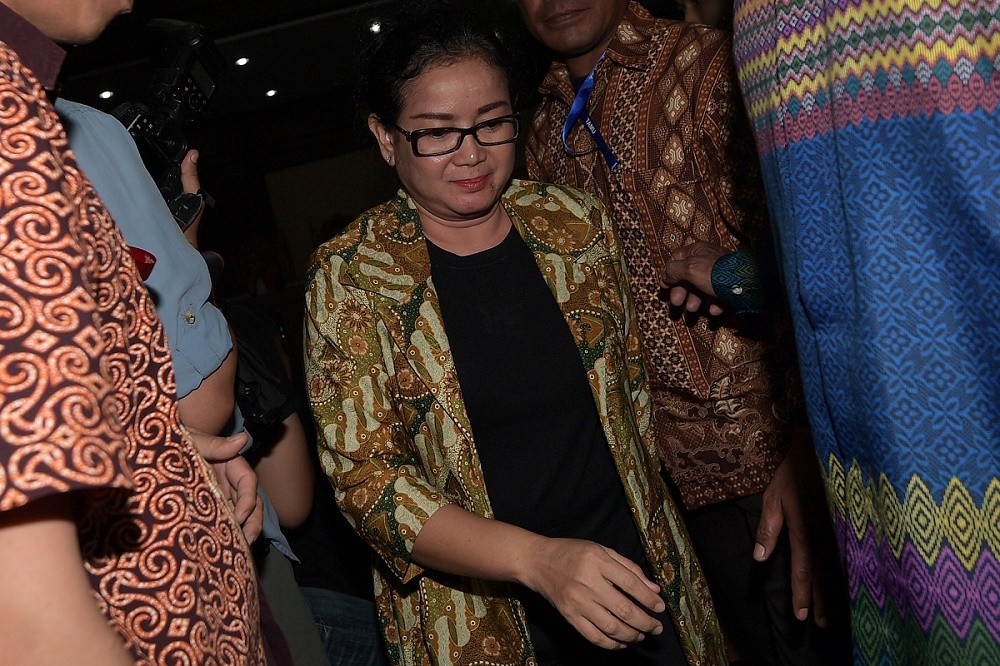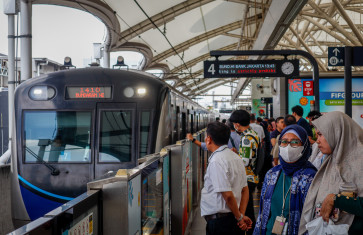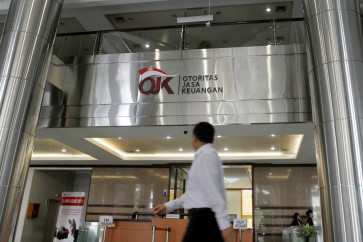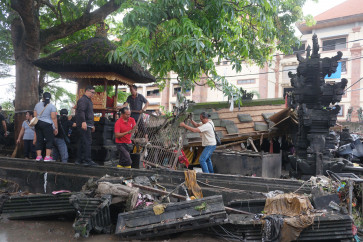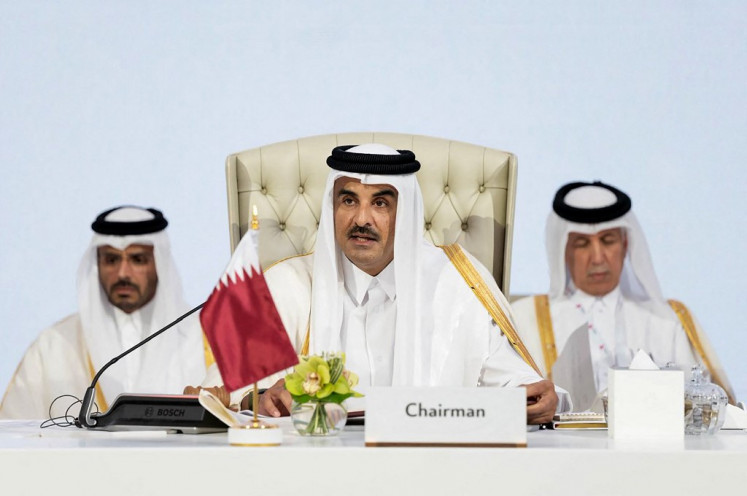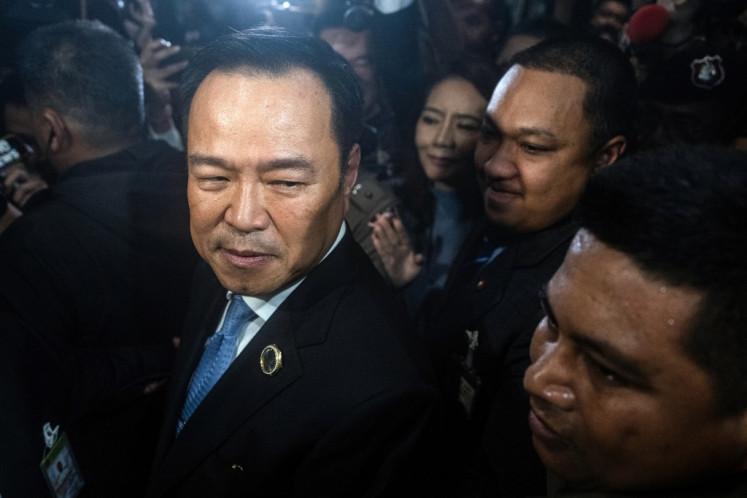Popular Reads
Top Results
Can't find what you're looking for?
View all search resultsPopular Reads
Top Results
Can't find what you're looking for?
View all search resultsKPK rebuffs House inquiry
The Corruption Eradication Commission (KPK) has rejected the House of Representatives’s decision to launch an inquiry into its investigation into the e-ID graft case, which has implicated dozens of politicians, including House Speaker Setya Novanto.
Change text size
Gift Premium Articles
to Anyone
The Corruption Eradication Commission (KPK) has rejected the House of Representatives’s decision to launch an inquiry into its investigation into the e-ID graft case, which has implicated dozens of politicians, including House Speaker Setya Novanto.
In a statement on Friday, hours after the House approved the inquiry proposal in a plenary session, KPK deputy chairman Laode Muhammad Syarief said the inquiry would undermine its investigation into the case.
“Any attempt that could hamper corruption investigations, including the e-ID case and the perjury case [of former lawmaker Miryam S. Haryani], will be rejected by the KPK,” he said.
The House’s plan to exercise its legislative rights of inquiry was approved during Friday’s plenary meeting led by House deputy speaker Fahri Hamzah, a long time critic of the antigraft body, despite opposition from several factions.
The inquiry has largely been seen as another attempt by the House to weaken the KPK, one of the most credible institutions in the country that has sent dozens of politicians, including party leaders, to prison for graft.
Fahri said after the plenary meeting that the House would proceed with the formation of a special committee to carry out the inquiry.
“The special committee’s establishment will wait until after May 17, the beginning of the new sitting period,” Fahri said. The House will be in recess from April 29 to May 17.
Lawmakers have argued that the inquiry is meant to make the KPK transparent.
“The inquiry will probe the KPK’s authority and its execution of duties based on Article 5 of the 2002 KPK Law, which stipulates that in carrying out its duties, the KPK is based on legal certainty, openness, accountability, public interest and proportionality,” NasDem Party lawmaker Taufiqulhadi said.
The inquiry, however, appears to be mainly aimed at forcing the KPK to release interview records with Miryam, in which she mentioned the alleged roles of a number of lawmakers in the e-ID graft case. During a hearing with the KPK last Wednesday, House Commission III overseeing legal affairs requested that the agency play the interview records.
“If all the evidence is disclosed, it will hamper the legal process and affect the handling of the e-ID graft case,” Laode said.
In an e-ID hearing at the Jakarta Corruption Court a month ago, Miryam, who was under oath, retracted all statements she made during the interrogation in question, claiming she had been intimidated by KPK investigators during the interrogation.
Top KPK investigator Novel Baswedan, who was hospitalized following an acid attack, denied Miryam’s claims, saying that during the interrogation, Miryam instead claimed that at least five lawmakers had intimidated her after informing the KPK about the alleged distribution of illicit kickbacks related to the Rp 5.9 trillion (US$442.5 million) project to lawmakers.
The KPK named Miryam a perjury suspect on April 5 and put her on its most-wanted list on Thursday after she failed to fulfill two summonses.
The Indonesia Corruption Watch (ICW) lamented the House’s approval of the inquiry, saying that the voting in the plenary meeting was invalid since it did not adhere to the mechanism stipulated under Article 199 (3) of the 2014 law on legislative institutions.
The law stipulates that inquiry rights can be passed should a plenary meeting receive the approval of more than half of House members and the decision is made with approval from more than half of House members present.
“[Fahri] ignored interruptions from House members who refused to approve the inquiry proposal. Many legislators walked out and did not participate in the voting,” ICW legal researcher Lalola Easter said. “The KPK doesn’t have to attend the forum [of inquiry] as it is illegal and legally flawed.”
Friday was not the first time the country saw the public raise concerns over the House’s efforts to weaken the KPK.
The House decided previously to revive a plan to defang the KPK by revising the 2002 KPK Law.
The proposed revisions also include the establishment of a KPK supervisory body, the revocation of the KPK’s sole right to wiretap, restrictions on hiring independent investigators and the requirements to drop a case. (mrc)

